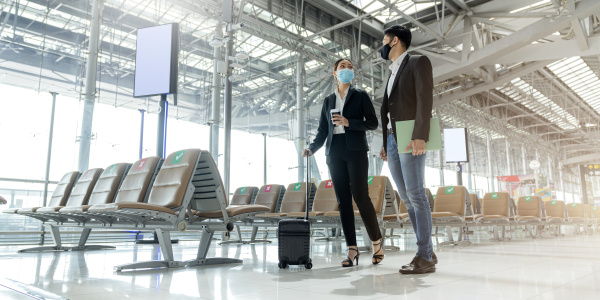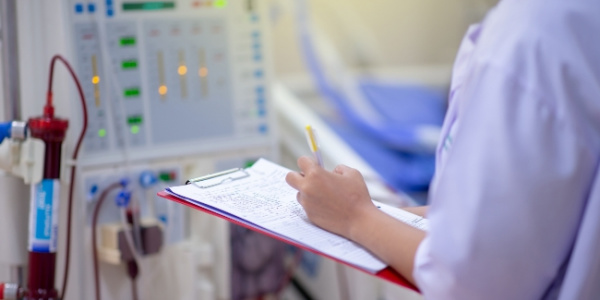In-center Haemodialysis For Kidney Failure
With this treatment, you schedule three four-hour treatments per week at a kidney dialysis center that’s fully staffed by a personalized care team. It uses a machine to filter your blood and clear toxins from your kidneys. In-center hemodialysis offers several potential benefits, which include:

The chance to socialize with other patients and staff

Treatment is administered by trained kidney care professionals

No supplies to store at home

In-centre haemodialysis for Hepatitis patients
Those who undergo dialysis are at increased risk of getting hepatitis B and C. The virus can be transmitted from the use of multidose drug vials and contamination of medical equipment. We provide separate machines for patients with hepatitis. Please contact us for further details.
FAQs About Kidney Dialysis Treatment
What Is Kidney Dialysis Treatment?
Dialysis is a treatment that removes wastes and excess fluid from your blood.
If I Have Kidney Disease, Will I Need Dialysis?
In the early stages of chronic kidney disease (CKD), you do not need dialysis. The stages of chronic kidney disease can last for many years. But if your kidneys fail, you will need dialysis or a kidney transplant to keep you alive.
When Should I Start Dialysis?
National Kidney Foundation guidelines recommend you start dialysis when your kidney function drops to 15 percent or less — or if you have severe symptoms caused by your kidney disease, such as shortness of breath, fatigue, muscle cramps, nausea or vomiting. Your doctor will help you decide when to start dialysis, based on your symptoms and the results of lab tests that measure how much kidney function you have left.
Insurance and other funding bodies or sponsors (e.g. Jabatan Perkhidmatan Awam, SOCSO, etc.) may cover treatment for kidney failure whenever your doctor determines it is needed. If you are not having symptoms, you may be able to wait to start dialysis. Since chronic kidney failure often happens slowly, sometimes people do not realize how bad they have been feeling until they start dialysis and begin to feel much better.
It is important to start getting ready for dialysis or a transplant well in advance — when your kidney disease reaches stage 4 or 5. Learning about the types of dialysis and transplant options will help you make the choice that is best for you. Any type of dialysis will require surgery to allow access for your treatments, and this should be done well in advance to allow time for healing before dialysis begins.
What can I do while I dialyze at a center?
You are free to read, watch television, work or play on your laptop, talk to other patients and care team members, sleep—whatever activity you can do from the dialysis chair.
Who is taking care of me at the dialysis center?
You spend a lot of time—and place a lot of trust—with the people who care for you. A supportive kidney health care team can help make your experience more pleasant. At DaVita®, you’ll receive personal care and attention from a highly trained team of professionals that wants to help you maximize your quality of life.
How does in-center hemodialysis work?
Once you arrive at the dialysis center, the healthcare team—from the nurse to the facility administrator—will take care of all aspects of treatment.
First, your access area will be washed by a patient care technician (PCT). Once that’s complete, you will be weighed and escorted to your dialysis chair. Your standing and sitting blood pressure will be taken and a dialysis nurse will check your vitals before connecting you to the dialysis machine.
The typical dialysis session is four hours. During that time your care team will monitor your blood pressure and the dialysis machine’s performance. When the dialysis treatment time is up, they will disconnect you from the dialysis machine and record your vital signs again.
What is The Duration of Kidney Failure Treatment per Session in Malaysia?
Haemodialysis is one of the kidney disease treatments in Malaysia. It is normally done 3-4 sessions each week. It takes approximately four hours per session. However, the duration of the treatment still depends on individual factors such as the functionality of your kidney, the water you gain after treatment, the waste your body produces and the size of your body.
Does Kidney Disease Treatment Cause Discomfort?
Depending on your body, you may experience discomfort at the beginning of your kidney dialysis treatment as the needles are inserted in your fistula or graft. Although dialysis treatment is naturally painless, you may experience headaches, vomiting or cramps after dialysis sessions if your blood pressure drops.
This happens to a small number of patients, especially if the patient is dehydrated. However, most patients report no further problems after several treatments. If you have any symptoms during or after your kidney failure treatment, you should let your doctors or nurses know.
Your dialysis care team will help you to feel better by consistently checking on your condition, providing you with proper medications, and slowing down fluid removal during the dialysis treatment process.
What does The Average Kidney Dialysis Treatment Cost in Malaysia?
Kidney dialysis treatment costs in Malaysia may vary according to the diagnosis and conditions of the patient. It is best to get your consultation and advice from our professionals first to find out the exact dialysis treatment prices for you. You may contact us at 1-800-180-780 to book your appointment.


